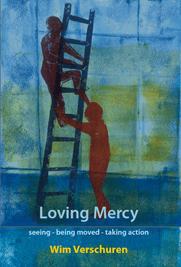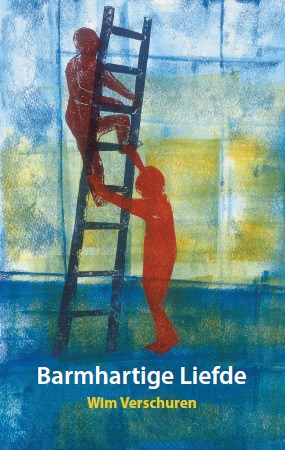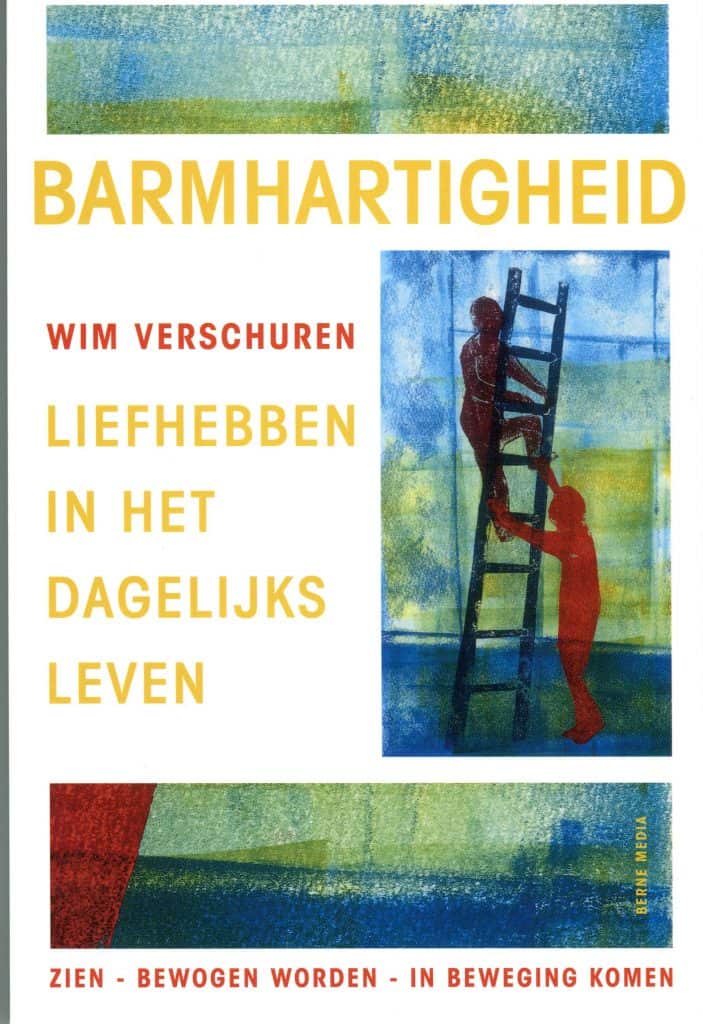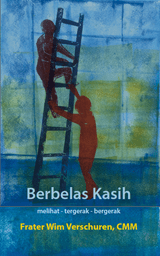Some words about a book I am supposed to know pretty well, because I helped the author finalizing his text and publishing it. But I am reading it again, in these days, with surprise and gratitude. It is one of those books you can best read slowly, because of its thorough meditations. It is a valuable resource for inspiration.
.
My Spiritual Testament?
Wim Verschuren (1933-2020) passed away last December, 87 years old. This book is probably his most tangible legacy. It was first published in Dutch in an internal CMM edition, with the title Barmhartige Liefde (2017). The English translation Loving Mercy followed in June 2018 and the Indonesian translation Berbelas Kasih in November 2020, a few weeks before the author’s untimely death (due to Corona). In the meantime Wim had also published a slightly revised Dutch edition, Barmhartigheid. Liefhebben in het dagelijks leven, addressing a wider audience in the Netherlands (2019). Four editions in four years!
Wim was grateful for it and enjoyed giving this book to friends and guests. With some irony he referred to it as his ‘geestelijk testament’, his spiritual testament. With irony, because there were still many other things he wanted to share and he felt very limited by the format of a book with no more than 170 pages. The book was written on request of his Dutch fellow brothers, for the Year of Mercy (2016), and this was another element determining its tone and contents.
.
Movement of Mercy
Loving Mercy reflects a long process of rethinking and refounding the spirituality of Mercy of the Brother Congregation, a process that had started already in the 1970s and 1980s or maybe even before. Since its beginning, Brother Wim Verschuren was at the heart of this process of spiritual resourcing. He was one of the brothers who carried this process of renewal, as superior general between the years 1978 and 1990, as the founder of the Dutch Movement of Mercy in 1998 and as a very active brother in many formation programmes till today. I am very grateful Brother Wim was able to put together into one book a series of short and nicely illustrated texts, many aspects of the spirituality of mercy, as well as the main elements of the history of this refounding process, as he was one of its main actors and witnesses.
I am convinced many elements in this book will address questions and needs many religious, or maybe all Christians will face. I will list a few of these questions. How can we live a spirituality of mercy and bring it to life? How can we start putting it into practice? What is the deeper meaning of merciful love? And in particular for religious congregations: what are the implications of a spirituality of mercy for community life? How can a spirituality of mercy be developed over time and what is its meaning to the older brothers? The author is not afraid to consider delicate issues, such as the importance of forgiveness in community life and the challenges of merciful leadership. How should we deal with our shortcomings, as individuals and living in community? Are there prayers that help us to become more merciful?
For all these reasons this book can be considered a kind of introductory guide into the spirituality of mercy: it is almost a handbook on account of its important questions, its open and personal answers and its use of reliable sources. Brother Wim also paints the broader horizon of this spirituality, with references to important Church documents, theological reflections by Henry Nouwen, Karen Armstrong and Mother Theresa and in particular to the writings and speeches of Pope Francis. In this way Loving Mercy illustrates that his personal research for spiritual renewal did not take place in isolation, but was and still is part of a broad movement within the Church. Wim was proud and grateful for being part of this impressive, worldwide Movement of Mercy.
Choosing the best titles
It is almost unbelievable that Brother Wim was able to write this book, at his age, and bring with it to conclusion a process of about half a century of spiritual pioneering. Without doubt, his warm and authentic love for his fellow brothers gave him the energy to accomplish this difficult task. It was not always easy to make choices, for illustrations, for titles, for almost everything! We had long discussions about the most appropriate titles: would we go for Merciful Love or for Loving Mercy? For Barmhartige liefde or Barmhartig liefhebben? The new Dutch edition is a nice illustration of some improvements, to begin with the title.
We can recommend Loving Mercy for individual reading and reflection, but also for community sharing and at formation sessions. It is not only an important text for brothers and sisters of the CMM and SCMM families, for the staff working in their schools, and for their friends. We can also recommend it to other members of the large Vincentian Family, since it is solidly embedded in Vincentian spirituality, and to everybody who takes active christian charity at heart. Loving Mercy is more than just a book: it is a word that is alive!
Wim Verschuren, Loving Mercy. Seeing – being moved – taking action. Tilburg, Brothers CMM, 2018. Paperback, with illustrations. 172 pp. ISBN: 978-90-824078-4-6.
Wim Verschuren, Barmhartige liefde. Tilburg, Fraters CMM, 2017. Paperback. Geïllustreerd, 168 pp. Uitverkocht. ISBN 978-90-824078-2-2.
Wim Verschuren, Barmhartigheid. Liefhebben in het dagelijks leven. Berne Media, 2019. Paperback, 143 pp. ISBN 978-90-8972-290-4.
Wim Verschuren, Berbelas Kasih. melihat – tergerak – bergerak. Yogyakarta, Frater CMM, 2020. 176 pp. ISBN 978-90-824078-6-0.
.
(the above text partly overlaps with the preface to the English edition)





